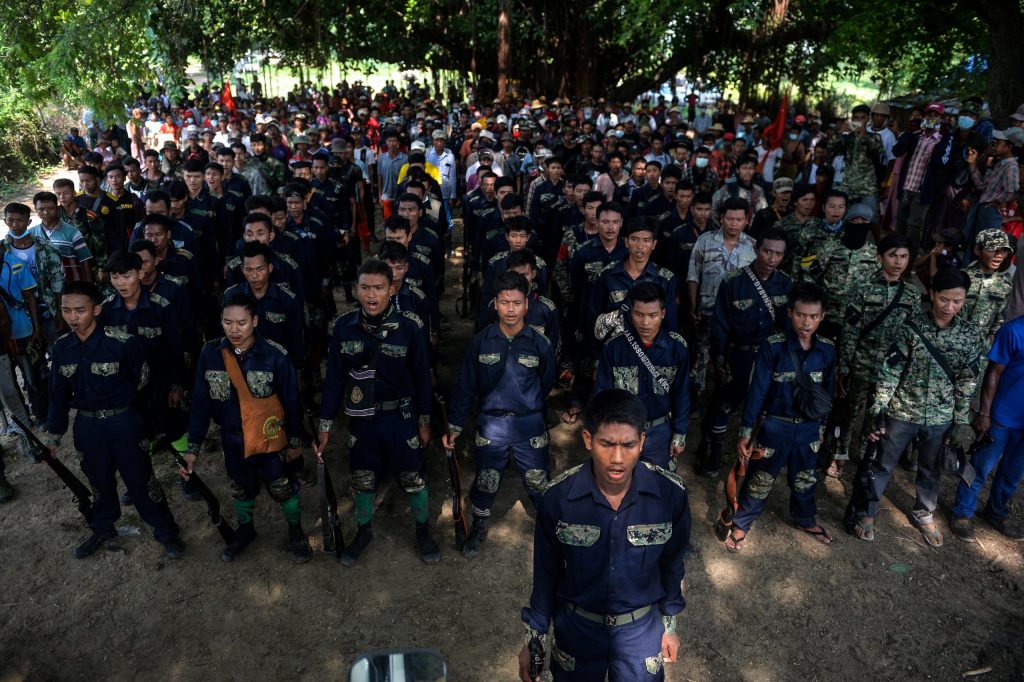Data Matters No. 33
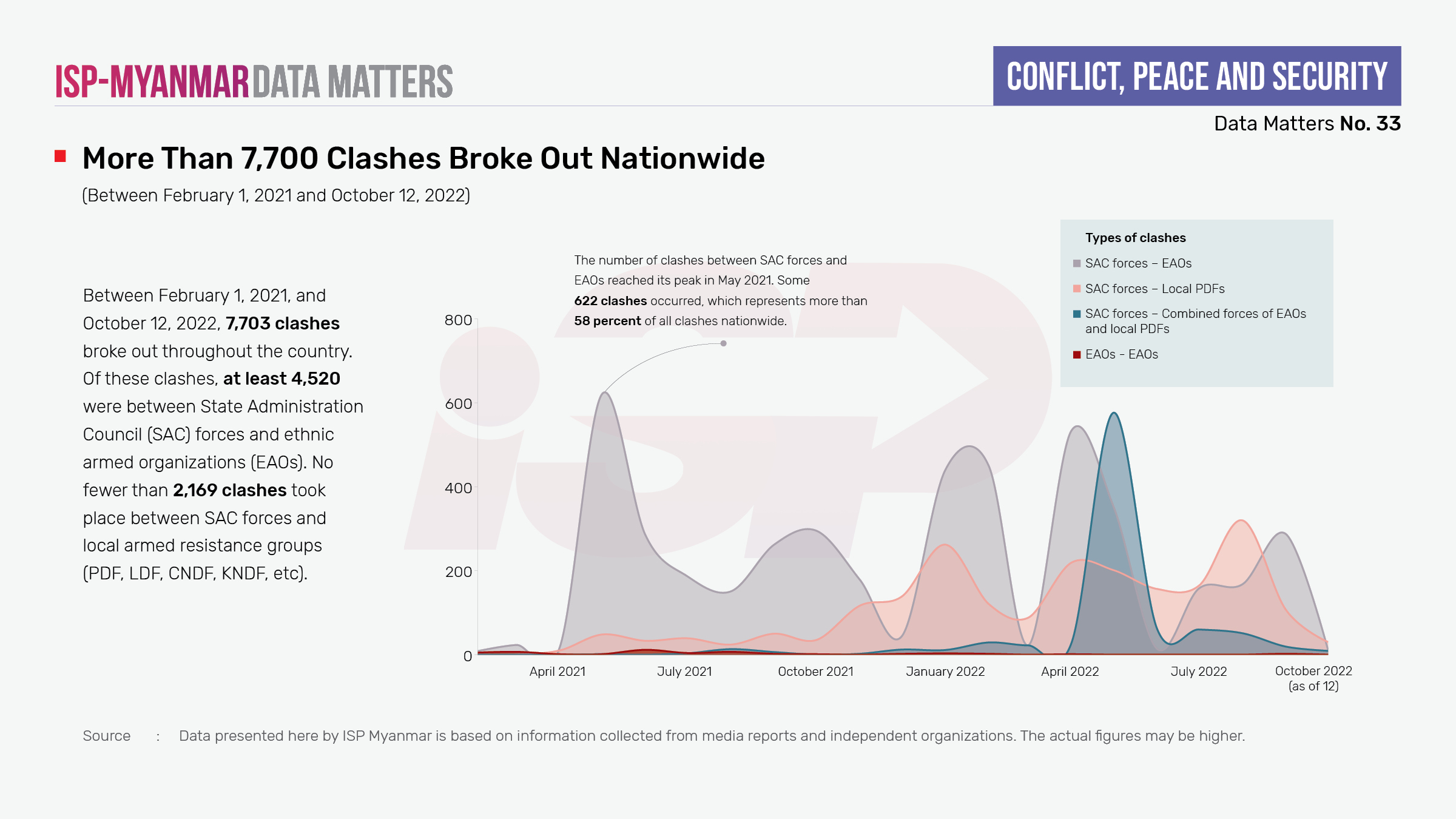
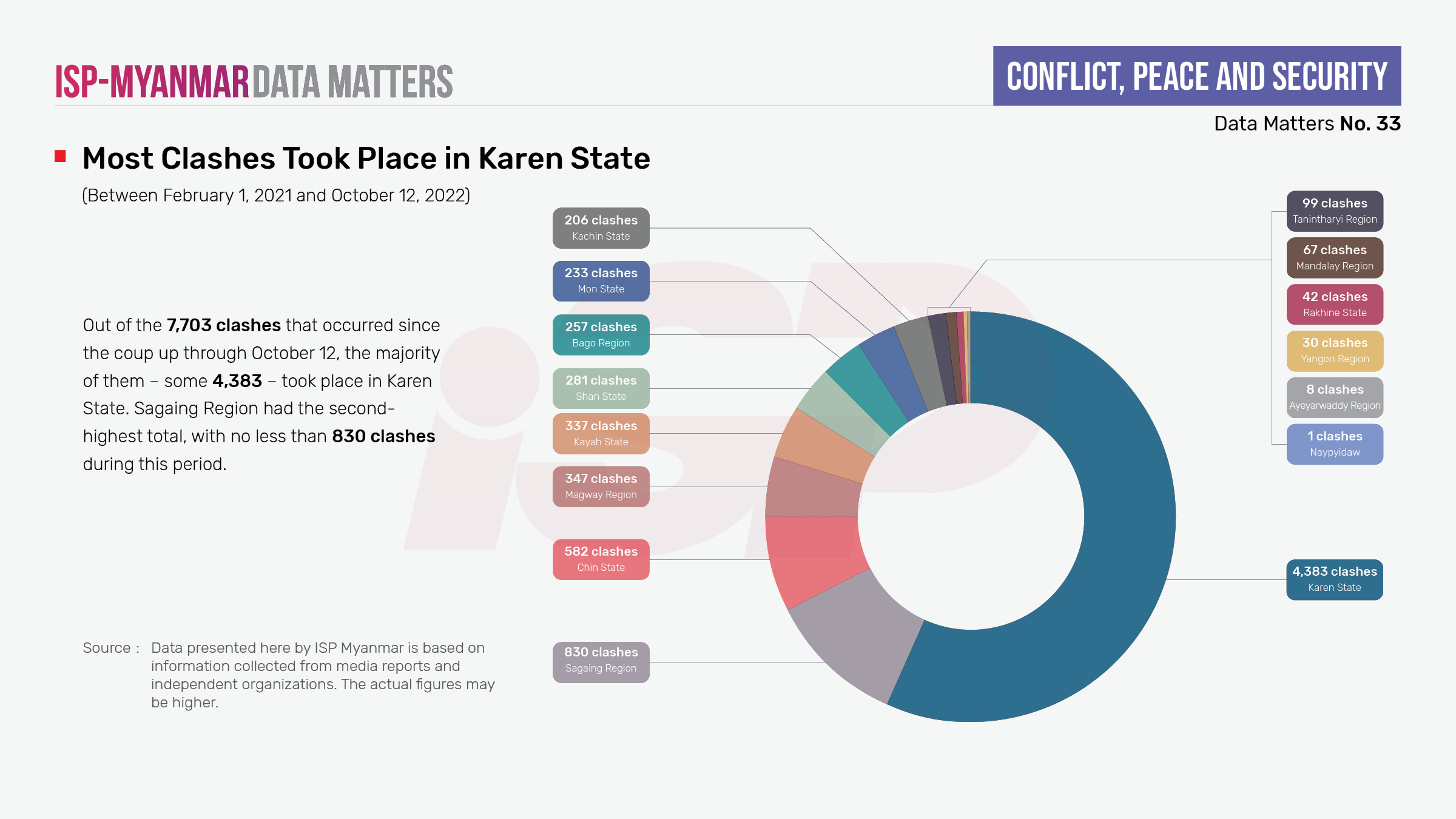
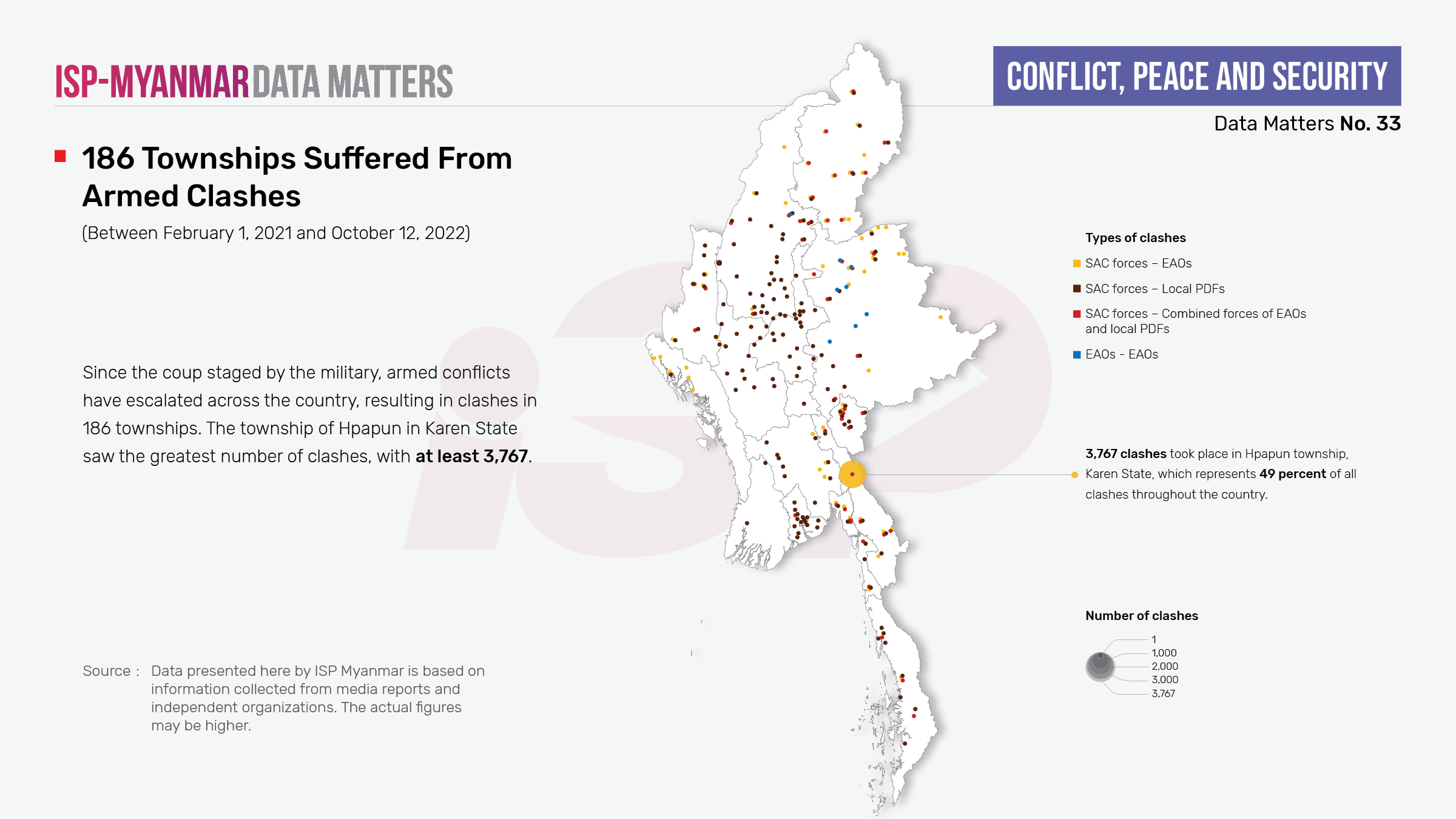
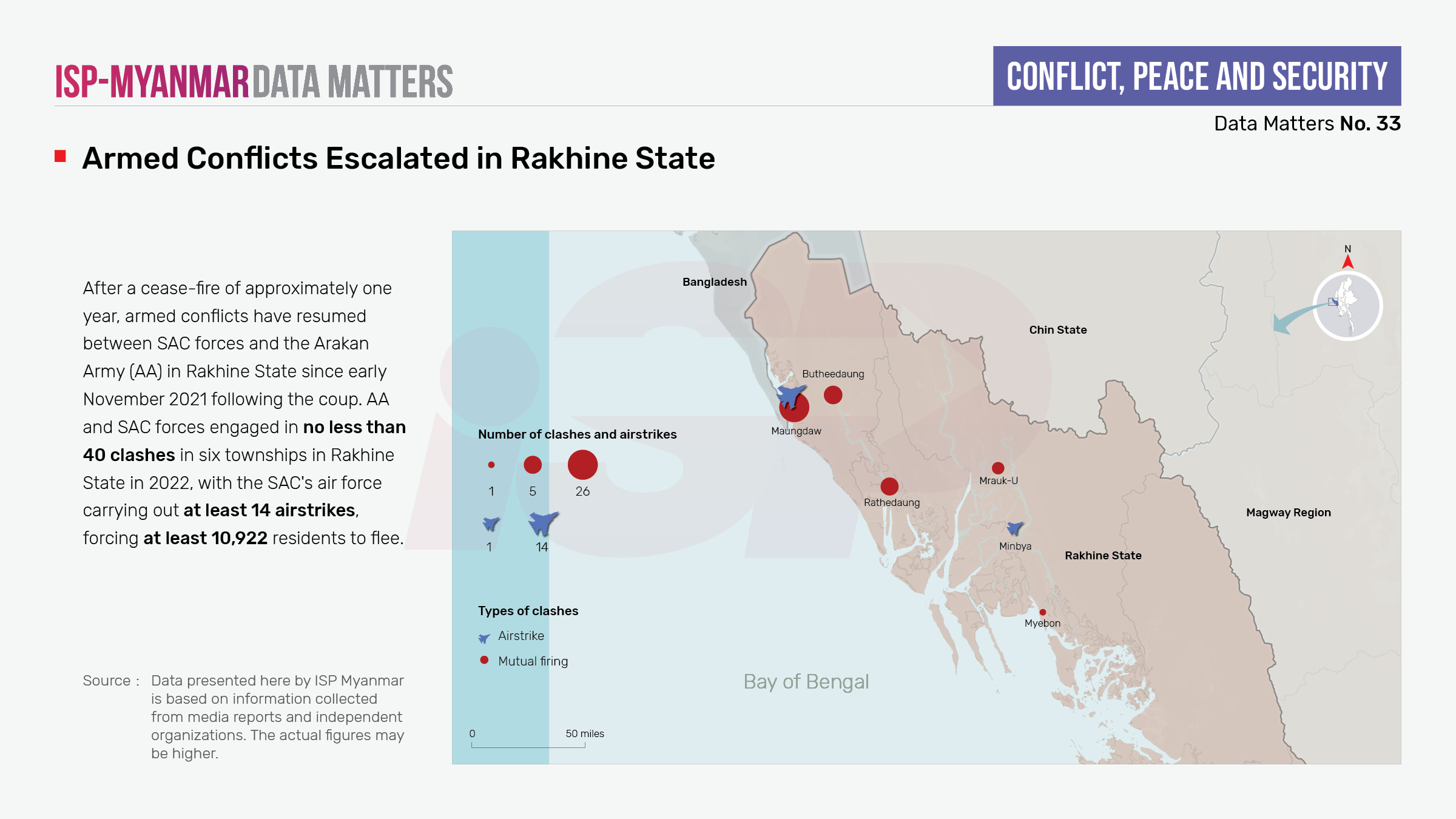
A total of 7,703 clashes broke out in the country between February 1, 2021, and October 12, 2022 following the coup. There were more than 7,000 battles during the period, of which at least 4,520 were between SAC forces and ethnic armed organizations (EAOs), and at least 2,168 were between SAC forces and local armed resistance groups (PDF, LDF, CNDF, KNDF, etc.). At least 906 clashes were launched by ethnic armed organizations and local armed resistance groups against SAC forces.
Karen State saw the majority of clashes across the country with at least 4,383 out of more than 7,700 nationwide, followed by Sagaing Region with at least 830 clashes. The escalation of armed conflicts has resulted in clashes in 186 townships across the country.
Meanwhile, armed conflicts between SAC forces and the Arakan Army (AA) have resumed in Rakhine State since early November 2020 following a cease-fire of approximately one year in the aftermath of the coup. AA and SAC forces engaged in no fewer than 40 clashes in six townships in Rakhine State, which resulted in the displacement of at least 10,922 residents.
∎ Why does it matter?
By looking at the number of civilian fatalities and injuries, how they were killed and wounded, and the number of people displaced by fighting involving SAC’s forces and EAOs, or within EAOs themselves, it is possible to examine whether or not armed forces have committed human rights violations from the perspective of transitional justice. In addition, by studying the post-coup situation, further research can be conducted to examine whether there has been a change in conditions related to Myanmar’s peace process.
∎ Other relevant readings
On-the-ground reports from ethnic news organizations and other independent media groups provide regular updates about conflict situations, their impact, and the collateral damage in the aftermath of the military coup. These include reports of renewed fighting in ethnic areas, civilian fatalities, and rising refugee and IDP issues on the ground. In addition, records and reports by United Nations organizations such as the United Nations Office for the Coordination of Humanitarian Affairs (UNOCHA), and other independent local and foreign organizations also provide information about the ongoing conflict situation in Myanmar.

